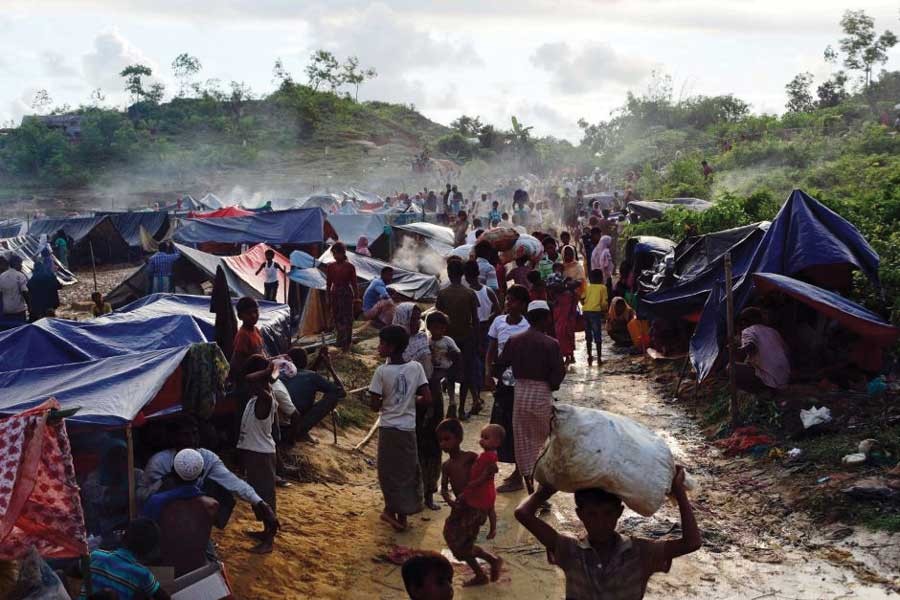International Organisation for Migration (IOM), the UN migration agency, has shifted almost 12,000 Rohingyas to safer ground.
Storms continue to lash southern part of the country, damaging tarpaulin shelters and raising the risk of landslides on the steep sandy slopes of the refugee settlements.
IOM is racing to support the ongoing relocation of 24,000 people recognised as being highest risk, says the UN migration agency on Tuesday.
The inter-agency Site Maintenance Engineering Project (SMEP) - a joint effort between IOM, WFP and UNHCR - is also working at full speed to prepare new land made available by the government to the southwest of the existing camps to allow more people to move to safer ground.
Almost 700,000 refugees have fled violence in Myanmar and arrived in Cox's Bazar since August 2017.
The initial influx saw hundreds of thousands of people desperate to find a place to shelter, says the IOM.
As a result, many ended up living in drastically over-crowded conditions, on dangerous, unstable slopes stripped of vegetation and at risk of collapse in the rain.
"The impact of the recent storms is a worrying indication of what people will face during the cyclone season and at the height of monsoon," said Manuel Pereira, IOM's Emergency Coordinator in Cox's Bazar. "There is no time to lose in supporting those at risk to move to safer ground. The work being done under the SMEP will help save lives."
The government of Bangladesh has made 500 acres of new land available to relocate refugees at risk, but due to the topography of the Cox's Bazar area, where much of the land is hilly, major earthworks are needed to prepare the ground.
Only a fraction of the newly available land can be made safe for relocation before the monsoon, which will begin in earnest next month.
Pereira added that relocation is one of a range of measures being taken by IOM and its partners to support the refugees in the months to come.
Others include pre-positioning of key road clearing equipment and emergency provisions, mobile medical services, training refugees in search and rescue and first aid, and raising people's awareness of the risks, reports UNB.


